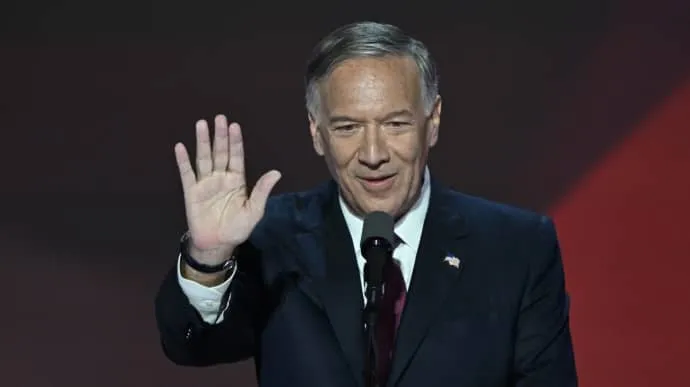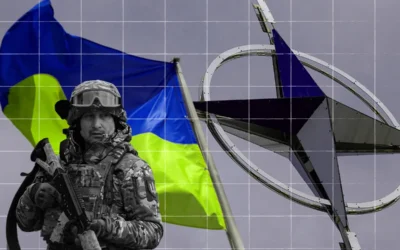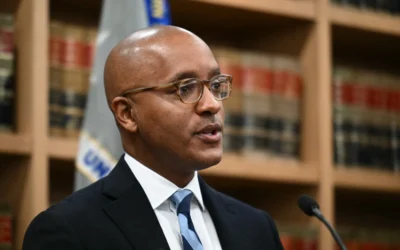Mike Pompeo Critiques US Response to Putin’s Aggression in 2014
In a recent address at the Odesa Black Sea Security Forum, former US Secretary of State Mike Pompeo made headlines by asserting that the United States did not do enough to prevent Russian aggression in Ukraine in 2014. Pompeo, who served under President Donald Trump, highlighted the critical moments when decisive action could have altered the trajectory of events leading to the current state of conflict in the region.
Context of Pompeo’s Statements
The 2014 annexation of Crimea by Russia marked a significant turning point in international relations, drastically escalating tensions between Russia and the West. Despite global condemnation and the imposition of sanctions, the Kremlin’s strategies in Ukraine have largely continued unabated. Pompeo’s retrospective analysis aimed at revisiting these events exploded expectations, particularly among U.S. foreign policy analysts who have debated the effectiveness of American responses since then.
The Odesa Black Sea Security Forum
The Odesa Black Sea Security Forum, which is an important event for discussing security dynamics in the Black Sea region, hosted numerous leaders and officials from around the world. As a platform for both diplomatic engagement and security assessments, it proved to be an apt venue for Pompeo to express his views and concerns about the geopolitical implications that stemmed from the events in Ukraine and surrounding areas.
Pompeo’s Key Points
Pompeo articulated a clear message during his speech, stating that “the lack of decisive action from the United States and its allies in 2014 served to embolden Putin and send a signal that aggressive actions would be tolerated.” This assertion reveals a growing consensus among some analysts that the failure to adequately confront Russian actions when they first materialized could have led to a different outcome.
Why 2014 Mattered
Many analysts agree that the events of 2014 represented a crucial inflection point. If stronger measures had been taken by the U.S. and NATO at that time, such as providing military assistance to Ukraine or enhancing sanctions against Russia, it could have constrained Putin’s ambitions. By allowing the annexation of Crimea to unfold with minimal pushback, the narrative of Western weakness was propagated, which ultimately encouraged further aggression, leading to continuous conflicts in the eastern regions of Ukraine, notably in Donetsk and Luhansk.
The Global Context
Pompeo’s comments did not just focus on Ukraine. He painted a broader picture of the international landscape, discussing how perceived U.S. inaction has influenced conflicts beyond just Ukraine, including in Syria, Georgia, and the South China Sea. His reflections underscore a pressing concern that failing to deter aggression in one region can lead to a cascade of geopolitical challenges elsewhere.
Responses to Pompeo’s Assertions
The response to Pompeo’s critiques has been mixed. Supporters of a more aggressive foreign policy argue that his remarks validate longstanding concerns about the U.S.’s strategic posture in post-Cold War Europe. They assert that a reevaluation of American involvement in global conflicts is essential to prevent further erosion of Western influence in strategic regions.
Conversely, opponents argue that hindsight bias simplifies the complexities of international relations and decision-making at the time. They suggest that Russia’s annexation of Crimea was a pre-planned move well-coordinated by the Kremlin, and thus, a stronger response may not have yielded the desired effects or may have led to escalating tensions even further.
Implications for U.S. Foreign Policy
As the U.S. navigates an increasingly multipolar world, Pompeo’s statements bring to the forefront critical discussions about the efficacy and scope of U.S. foreign policy. The fundamental question remains: How should the United States react to territorial aggression in a way that effectively balances diplomacy with deterrence?
Pompeo’s insistence on the urgency of addressing Russia’s acts of aggression reflects a call to rethink approaches to Russian relations, with some advocating for a stronger military presence in Eastern Europe and others arguing for renewed diplomatic efforts aimed at dialogue.
The Consequences of Inaction
One of the most striking takeaways from Pompeo’s address was the notion that inaction carries its own consequences. “When we fail to act decisively, we not only embolden aggressors but also cast a long shadow of doubt on our commitments to our allies,” he articulated, reinforcing the idea that American credibility is on the line.
This perspective resonates strongly among Eastern European nations, which have lived under the looming threat of Russian expansionism. The Baltic States, Poland, Romania, and others seek assurance that the U.S. stands committed to their security and sovereignty in the face of potential aggression.
Looking Forward: Lessons from History
As the world acts in response to an ever-changing geopolitical environment, it’s essential to take lessons from past mistakes. Pompeo urged policymakers to critically assess and learn from the failures of 2014, arguing that understanding these dynamics is imperative for effective diplomacy and international security today.
The stakes are higher than ever, with rising tensions between Russia and NATO, along with China’s assertive posture in Asia. For the U.S., the framework of its foreign policy must encompass a balance between strength and strategic foresight.
Conclusion
Pompeo’s reflections at the Odesa Black Sea Security Forum resonate with a broader audience engaged in the discourse about U.S. foreign policy strategy. His critique of the U.S.’s past inaction reveals a growing discourse about the need for a robust contra-aggression posture amidst a backdrop of often tumultuous international relations.
As the specter of further conflict looms in Ukraine and beyond, it is increasingly apparent that the decisions made today will shape the narratives of tomorrow. The challenge for U.S. policymakers is to ensure that history does not repeat itself, but instead empowers a strategy that fosters peace and deters aggression through a firm yet measured response.







